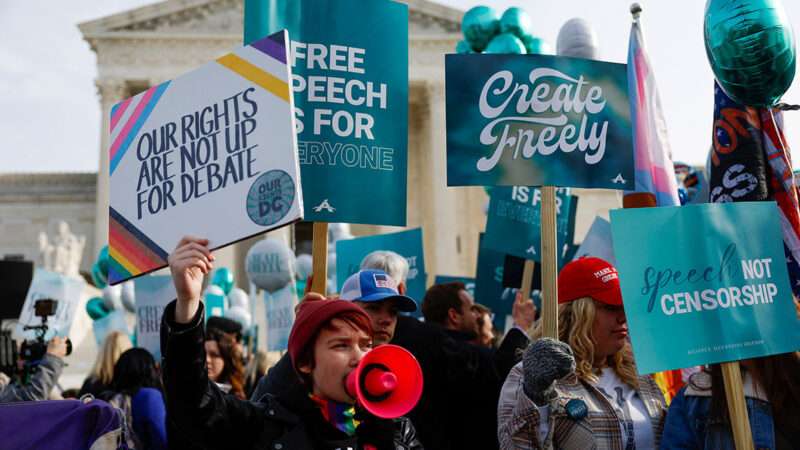
The government may not compel someone to “create speech she does not believe,” the Supreme Court ruled in June. In a 6–3 opinion authored by Justice Neil Gorsuch, the Court sided with a graphic designer, Lorie Smith, who wanted to expand into the wedding website business without being forced by Colorado law to create products celebrating same-sex marriages.
Back in 2021, the U.S. Court of Appeals for the 10th Circuit found that the planned websites would each constitute “an original, customized creation,” designed by Smith with a goal of celebrating the couple’s “unique love story.” As such, it said, they “qualify as ‘pure speech’ protected by the First Amendment.” The appeals court admitted that Smith was willing to provide her services to anyone as long as the substance of the project did not contradict her values. It also recognized that “Colorado’s ‘very purpose’ in seeking to apply its law to Ms. Smith” was to stamp out dissenting ideas about marriage.
Despite all of that, the 10th Circuit held that the state government was within its authority to compel her to create such websites. Lamenting “an unfortunate tendency by some to defend First Amendment values only when they find the speaker’s message sympathetic,” Gorsuch et al. concluded otherwise.
The ruling in 303 Creative LLC v. Elenis is neither as narrow nor as broad as it (theoretically) could have been. The Court did not do away with public accommodations laws or allow businesses to discriminate against customers on the basis of characteristics such as skin color or national origin. But it did note that “public accommodations statutes can sweep too broadly when deployed to compel speech.”
The high court also did not establish a right for any and every business owner to decline to provide services for same-sex weddings—only those whose services involve expressive activity. Whether a particular service (say, cake baking) is expressive will have to be litigated case by case.
At the same time, the majority decided Smith’s case as a matter of free expression rather than religious liberty. It did not say the faith-based nature of Smith’s beliefs about marriage entitled her to an exemption. Secular people with moral or factual objections to expressing a particular message presumably would receive the same protections as Christians or Muslims with religious objections—as they should.
“The opportunity to think for ourselves and to express those thoughts freely is among our most cherished liberties,” Gorsuch wrote in the majority opinion. “Abiding the Constitution’s commitment to the freedom of speech means all of us will encounter ideas we consider….’misguided, or even hurtful’….But tolerance, not coercion, is our Nation’s answer.”
The post SCOTUS' Ruling in Gay Wedding Website Case Was a Defeat for Compelled Speech appeared first on Reason.com.
from Latest https://ift.tt/Mzc4tnA
via IFTTT